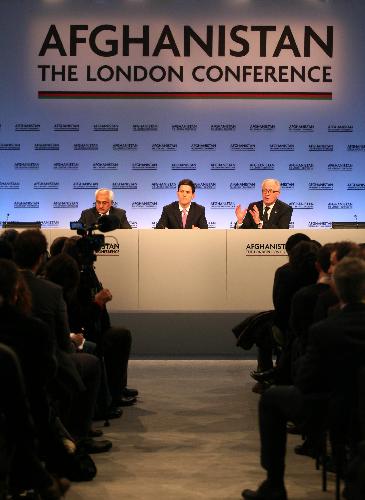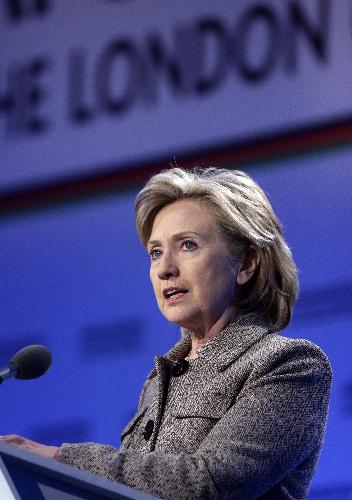Int'l community underlines support for Afghan gov't
The international community on Thursday underlined its support for the Afghan government and its security, development and governance following the one-day meeting in London.
Participant said in a communique that the challenges in Afghanistan particularly in political, economic, development and security areas are significant and inter-related. Therefore, the nature of international engagement in Afghanistan continues to evolve, in favor of increasingly supporting Afghan leadership in the areas of security, development, governance and economic assistance.
On security, conference participants committed to continue to improve the capability and effectiveness of the Afghan National Security Forces and provide the necessary support to the phased growth and expansion of the Afghan National Army (ANA) and Afghan National Police (ANP) to 171,600 and 134,000 personnel respectively, by October 2011, as approved by the Joint Coordination and Monitoring Board (JCMB) on Jan. 20.
The international community also showed its full support for the continued development and implementation of the National Police Strategy and agreed that NATO's plan for transition of Afghan security leadership province by province with the first being transited by late 2010 or early 2011.
Participants also recognized President Karzai's commitment that half of the country would have Afghan leadership within three years and the whole country within five years.
NATO Secretary General Anders Fogh Rasmussen said that the " ultimate goal" in Afghanistan was clear: "To hand over full responsibility to the Afghan security forces."
But he said the idea of setting timetables was premature, adding: "It will be a condition-based but not a calendar-driven process. We have to make sure that the security forces are actually capable to take the responsibility."
Go to Forum >>0 Comments
 Add your comments...
Add your comments...
- User Name Required
- Your Comment
- Racist, abusive and off-topic comments may be removed by the moderator.
 0
0 








